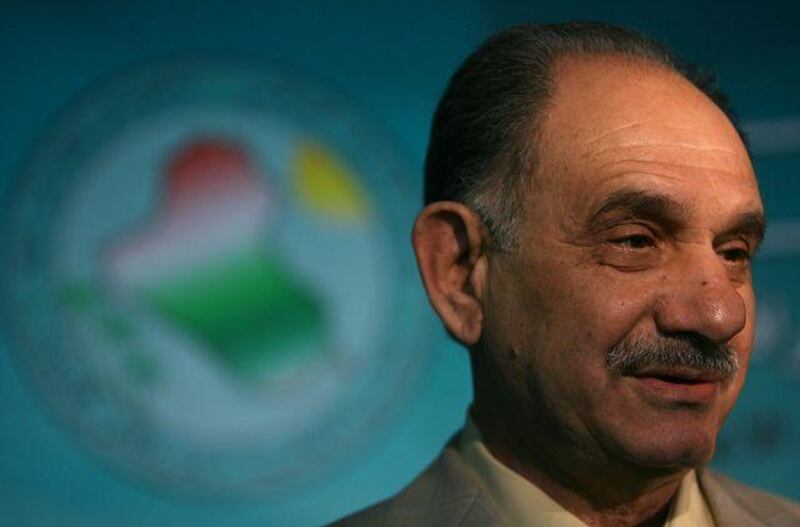BAGHDAD // An Iraqi appeal court has struck down a controversial ban on some 500 election candidates, helping to diffuse - at least temporarily - a dangerous constitutional crisis. While yesterday's ruling helped head-off a serious threat to March's national elections, any respite it offers may prove short-lived.
Rather than veto the blacklisting entirely, the appeal court's decision might only have postponed any bans until after the election. At least one official at the Independent High Electoral Commission (IHEC), the body in charge of administering the ballot, suggested that was the case. "The appeals panel decided to allow the banned candidates to participate in the next election and decided to postpone looking into the case until after the election," said Hamdiya al Husseini of the IHEC.
Amal al Qidara, vice chairman of the commission, told The National the court had examined appeals by all the blacklisted candidates and found no grounds to exclude them from the vote. "The commission [court] gave its final decision and we have accepted our responsibility to tell the candidates they can take part in the election," she said. Members of the justice and accountability committee, the panel behind the blacklist, also seem to believe the bans can be enforced post-election. Iraq's vaguely worded constitution gives little indication as to whether that is the case.
Throughout the crisis, due process has apparently been made up ad hoc, with little in the way of concrete legal guidance from the constitution. As a result, Iraq could face a situation where winning candidates are prevented from taking their parliamentary seats, in the event the ban is reinstated. For now, however, the immediate problem has been dealt with, to the relief of many Iraqi legislators, the United Nations and the Obama White House. All had feared the blacklist would strip the election - and any subsequent government - of legitimacy and perhaps reignite a waning insurgency.
Saleh al Mutlaq, one of the most prominent blacklisted figures, welcomed the court's ruling, saying it proved the legal system's independence from political pressure. Haider al Mulla, a spokesman for Mr Mutlaq's campaign, said the appeal court's decision meant the blacklist had been "cancelled". "It's a relief for the whole country, and it allows the political process to take place," he said. "Nationalists can now take part in the election, this will bring a change to the country, it will limit Iranian power."
Ali al Lami, a member of the justice and accountability committee and a leading figure behind the blacklist, said the appeal court had behaved unconstitutionally, breaking Iraqi election laws. "The court has allowed the appeal [against the bans] and let people take part in the election only under heavy US pressure," he said. "The American ambassador has done a lot of work on this and the court is following American orders.
"That breaks the constitution and it is illegal under election rules." Mr al Lami is accused by critics of being pro-Iranian. The blacklist he helped devise was seen by Iraqi nationalists and Sunnis as a crude attempt by Shiite groups to rig the vote and safeguard their power. Mr al Lami and supporters of the ban, including the Dawa party of the prime minister, Nouri al Maliki, maintain the blacklist was legal and merely a means of preventing hardliners from Saddam Hussein's Baath party from seizing control of the country.
The United States and the UN had been advocating a postponement of the ban. The US vice president, Joe Biden, was in Iraq last week apparently lobbying for such an outcome, although officially he maintained the matter was for Iraqis to settle. While the issue of the blacklist seems to have been dealt with for now, there remains ample room for legal dispute. And, critically, the underlying issues concerning sectarianism, nationalism and de-Baathification have not been addressed, merely postponed.
Those who consider the blacklisted candidates to be rebranded Baathists are unlikely to quietly settle for them to take a key role in the next parliament, much less influential positions in the government.
nlatif@thenational.ae






